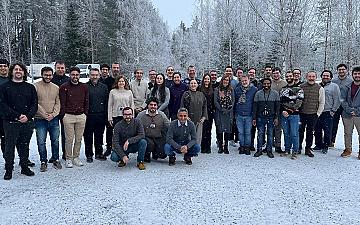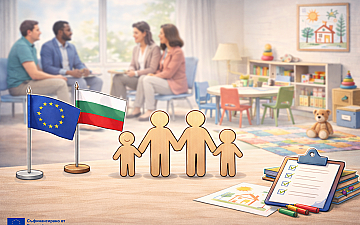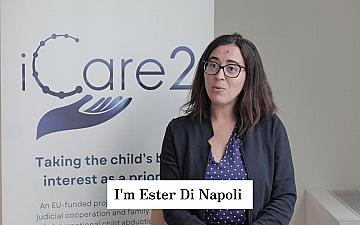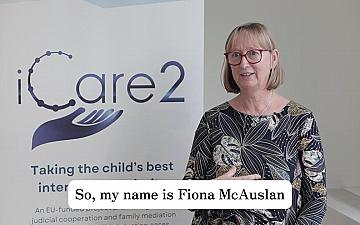The 2nd day of the E-PROTECT II International Workshop was held on the 24th of March
The 2nd day of the E-PROTECT II International Workshop was held online on the 24th of March, gathering more than 260 participants, including professionals working in the field of juvenile justice, academics, NGO experts, judges, prosecutors, lawyers, etc. The 2nd day of the Workshop was focused on the topic of conducting risk assessment of child victims of crime revealing many interesting facts, best practices and practical challenges on the matter across Europe.
The event started with a warm welcome and some introductory words from Panos Ketikidis, Vice Principal for Research and Innovation in the University of York Europe Campus. Mr. Ketikidis greeted all participants and underlined the great importance of conducting such events on the topic of child-friendly justice in the context of the need for sustained and continuous efforts in the field. After the introduction by Mr. Ketikidis, the first panel discussion devoted to the International, European and Nationalstandards concerning the risk assessment of child victims of crime began.
The 1st keynote speaker of the panel was Ms. Theoni Koufonikolakou, Deputy Ombudswoman for Children, Greece, who shared some insightful institutional gaps in the Greek practice, pointing out the fragmentation of initiatives as well as the insufficient amount of resources and efforts as the main concerns with respect to the evolution of child-friendly justice in Greece. Besides, Ms. Koufonikolakou recommended concrete reforms that should be made in Greece aiming at safeguarding the best interests of child victims of crime. The presentation of Ms. Koufonikolakou was followed by a staggering speech from Ms. Maria-Andriani Kostopoulou, Member of GREVIO, providing insights about their work in promoting risk assessments based on the Istanbul Convention. Moreover, she emphasised the need of multiagency cooperation and the elaboration of a systematic approach in cases of domestic violence against women, pointing out that the lack of common risk assessment mechanism is a challenge that should be overcome by practitioners.
The panel discussion continued with a presentation by Benoit Van Keirsbilck - Director of Defence for Children International –Belgium, and Member of the Committee on the Rights of the Child, who commented upon the existing risks child victims of intra-family and gender-based violence as well as on possible solutions in the best interests of the child. The 1st panel discussion ended with Ms. Isabella Mastropasqua from the Juvenile and Community Justice Department of the Ministry of Justice – Italy. Ms. Mastropasqua presented the national perspective on the implementation of international standards guiding risk assessments for child victims of crime, underlining the role and the responsibility of the social services in conducting the risk assessment.
The 2nd panel discussion started after a short break, with a brief introduction on the topic, namely - risk assessment of child victims of violence: Approaches and methods. The first panelist – Ms. Stella Karapa, Forensic expert witness, presented an intriguing recent case study from Greece and the applied methods for risk assessment in the course of criminal proceedings. After Ms. Karapa presentation, our second panelist - Taina Laajasalo, Chief Specialist and Forensic Psychologist from the Finnish Institute of Health, introduced a holistic multi-professional risk assessment method from Finland. Also, Ms. Laajasalo stated that the general aim of this method is the improvement of information flow and the multidisciplinary cooperation with respect to cases of child victims of crime.
Our 3rd panelist - Sabrina Reggers from the Family Justice Centre in Limburg, Belgium, acquainted us with another approach regarding the multidisciplinary risk assessment in the context of a Family Support Centre. Furthermore, she shared her thoughts of the key advantages of this approach, revealing some interesting facts about its practical implementation in Belgium. At the end of the second panel discussion, Ms. Stella Karapa yet again provided us with an interesting information on the potential implementation of best practices inspired from Finland and Belgium, sharing her final thoughts towards the concept of a child-friendly justice system.
Following the end of the second panel, a discussion on some specific practical questions was raised, leading to a brief presentation of the E-PROTECT Methodology and concluding remarks on the event. At the end, both days of the E-PROTECT II International Workshop resulted in gathering more than 500 participants, many high-profile and interesting panelists and a great discussion on some of the most intriguing topics regarding child-friendly justice and its importance.
The project is implemented with the support of the JUST Programme of the European Commission under Grant Agreement № 878593.








